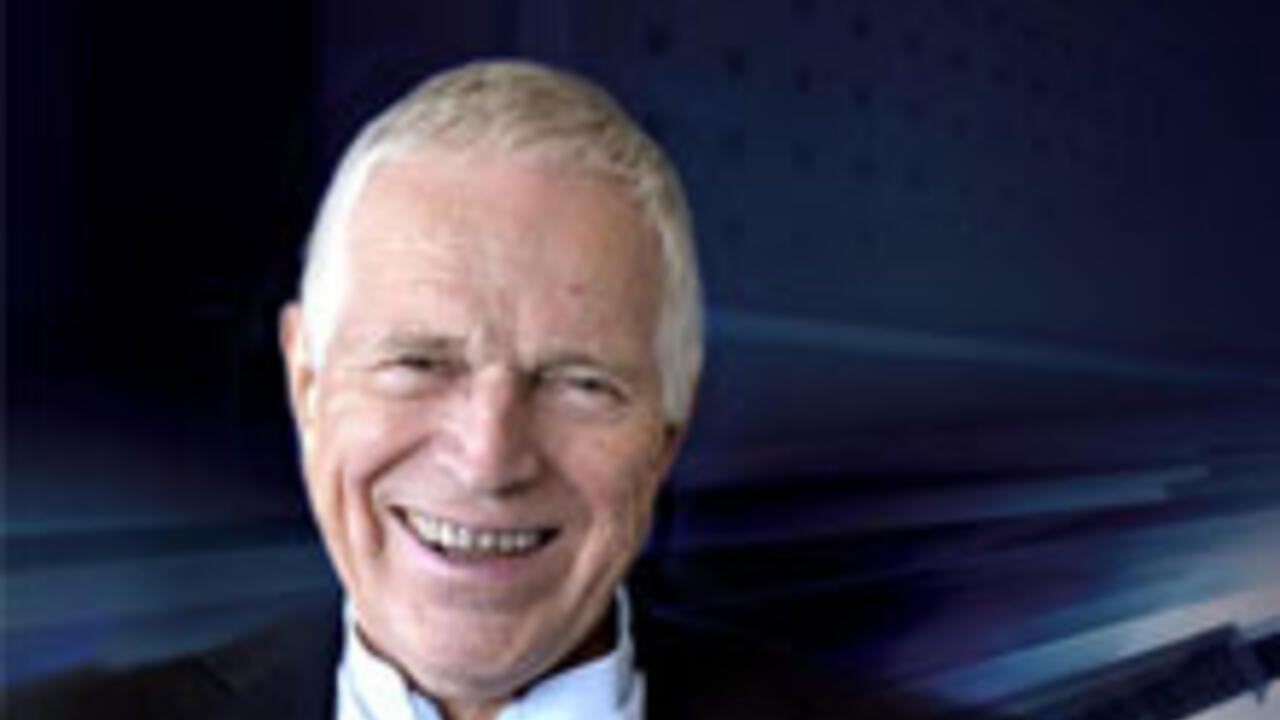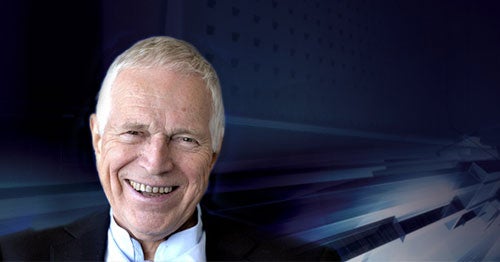
Nobel Prize winner at Waterloo to speak about innovation
It's not isolated visionaries like Steve Jobs that drive the economy. It's the millions of grassroots innovators that power prosperity, says Nobel laureate

It's not isolated visionaries like Steve Jobs that drive the economy. It's the millions of grassroots innovators that power prosperity, says Nobel laureate
By Staff Marketing and Strategic Communications
A Nobel laureate whose most recent book is being lauded as the best business book of the year is giving a public lecture about grassroots innovation at the University of Waterloo.
Edmund S. Phelps, who was awarded the Nobel Memorial Prize in Economic Sciences in 2006, will speak on Thursday, March 5 at the Mike & Ophelia Lazaridis Quantum Nano Centre.
Phelps, the McVickar professor at Columbia University, has had many publications in his career as an economist. His recent book, Mass Flourishing: How Grassroots Innovation Created Jobs, Challenge, and Change, has received wide-spread global recognition.
In his book, Phelps argues that the economic flourishing of the 1820s to the 1960s was a result of "modern values such as the desire to create, explore, and meet challenges. These values fuelled the grassroots dynamism that was necessary for widespread, indigenous innovation.
"Most innovation wasn't driven by a few isolated visionaries like Henry Ford and Steve Jobs; rather, it was driven by millions of people empowered to think of, develop, and market innumerable new products and processes, and improvements to existing ones."
He graduated with a Bachelor of Arts degree from Amherst College, Massachusetts in 1955 and went on to study at Yale University where he received his Ph.D. in 1959. Phelps won the Nobel, in part, for having deepened our understanding of the relation between short-run and long-run effects of economic policy.
The public is invited to attend Phelps lecture which begins at 2 pm and will take place in Room 0101 of Waterloo’s Mike & Ophelia Lazaridis Quantum Nano Centre. A book-signing will follow at 3 pm. Registration is required for this event.

Read more
Meet the five exceptional graduate students taking the convocation stage as Class of 2024 valedictorians

Read more
Meet the 13 exceptional students representing Waterloo’s newest grads

Read more
12 Waterloo students and postdoctoral fellows receive up to $10,000 in funding to develop their green-tech solutions
The University of Waterloo acknowledges that much of our work takes place on the traditional territory of the Neutral, Anishinaabeg, and Haudenosaunee peoples. Our main campus is situated on the Haldimand Tract, the land granted to the Six Nations that includes six miles on each side of the Grand River. Our active work toward reconciliation takes place across our campuses through research, learning, teaching, and community building, and is co-ordinated within the Office of Indigenous Relations.